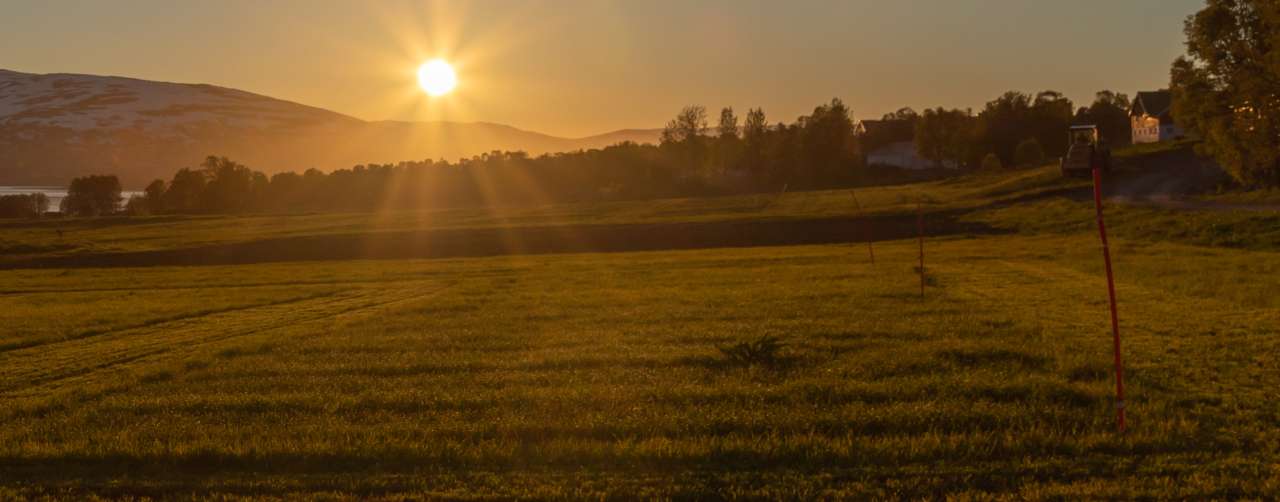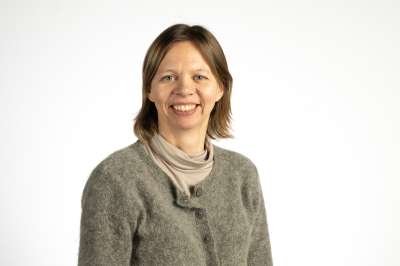Bright future for arctic food production

Photo: Jørgen Mølmann
In many parts of the world, climate change has a negative impact on agriculture and global food security. However, rising temperatures also present new opportunities for food and fodder production in the north.
Unstable winter conditions and increased autumn rainfall may pose challenges. Nevertheless, higher temperatures and a longer growing season offer new opportunities in Arctic regions. The natural light above the Arctic Circle provides unique growing conditions. Low sun angles, long periods of daylight, and the absence of dark nights affect plant growth and metabolism in distinctive ways. Plants grown at high latitudes develop faster than those further south due to the midnight sun.
Increased temperatures due to global warming are expected to lead to earlier spring thawing. This is expected to extend the growing season in the north, with peak growth in May and June when light conditions are optimal. This could result in larger yields, more harvests, and the ability to cultivate new, more productive varieties and species. It also means an extended grazing season.
However, climate change also presents new challenges. Milder and more unstable winters increase the risk of plants being more susceptible to damage. Wetter soil conditions in autumn will also make some tasks more difficult for Arctic farmers, such as soil preparation and harvesting potatoes and vegetables.
"In light of the global situation with climate change and food security, we believe it is important to look towards Northern Norway. Here, the effects are expected to be more positive than further south," says senior adviser Marianne Vileid Uleberg at NIBIO's Centre for Arctic Agriculture. "Arctic regions have significant potential to play a greater role in our food production and can and should become an important area for the sustainable utilisation of our natural resources."
Contacts

Purpose
The Centre for Arctic Agriculture promotes knowledge and activities that support Northern Norwegian farmers. The centre coordinates NIBIO's activities related to agriculture in Northern Norway.
Funding: NIBIO's core budget. Area-specific efforts for sustainable food production and value creation in the north are funded through agricultural agreements.
Collaboration: Northern Norwegian Agricultural Council, the county municipalities in Troms, Finnmark and Nordland, the County Governors, and other supporters of the Northern Norwegian agricultural industry.
Contacts

